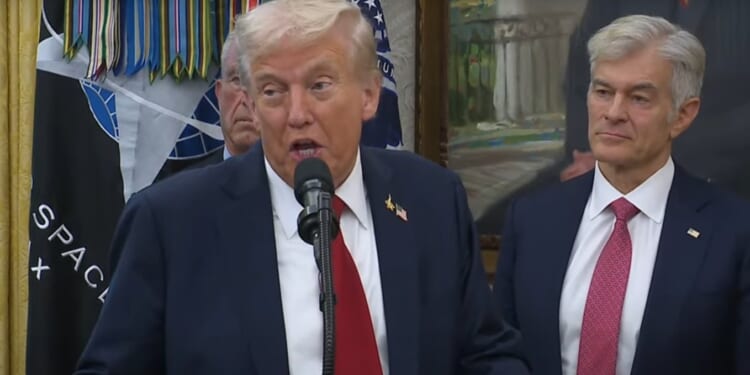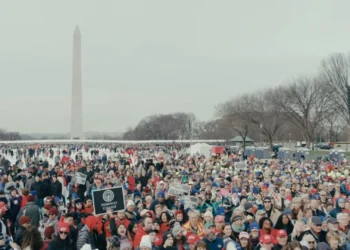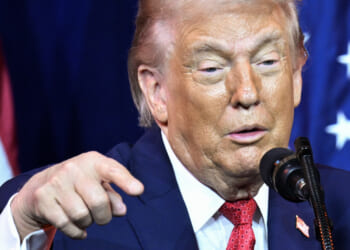Few policy initiatives could bring together Health and Human Services (HHS) Secretary Robert F. Kennedy Jr. and Pfizer CEO Albert Bourla.
But both men flanked President Donald Trump Tuesday as he announced that the pharmaceutical company had reached an agreement with the administration to bring its prices down for American consumers as part of Trump’s “Most Favored Nation” initiative.
Pfizer will offer all prescription drugs at a “heavily discounted” price through Medicaid, Trump said, while some Pfizer drugs will be available for purchase at discounted prices through a website operated by the federal government, which news reports say will be called TrumpRx. All new Pfizer drugs brought to the U.S. market by the drugmaker will be offered at the Most Favored Nation price. The company has also pledged billions in U.S. pharmaceutical manufacturing in the U.S.
The announcement follows a May executive order that called on pharmaceutical companies to recalibrate U.S. drug prices and bring them into alignment with the lower prices paid in Europe. Trump has accused foreign nations of freeloading off of massive American investments in pharmaceutical research and development. Trump has faulted the European Union in particular for applying pressure on drugmakers to charge much less than in the U.S. market.
“I think this is one of the largest medical announcements that this office has ever made,” Trump said. “We will be paying essentially what other countries pay.”
“We’re ending the era of global price gouging at the expense of American families,” Trump continued.
Trump indicated that the coming weeks will bring further deals with other pharmaceutical companies.
The May executive order called for the U.S. Trade Representative and Commerce Department to ensure foreign countries are paying their fair share in pharmaceutical research and development while tasking HHS with negotiating lower prices in direct-to-consumer sales with the industry akin to what European countries pay.
The administration pledged to implement “an aggressive suite of reforms” targeting pharmaceutical companies that would not come to the table. These could include new rules requiring lower prices in Medicare Part B and Medicare Part D; tackling anti-competitive practices by the pharmaceutical industry through the Federal Trade Commission and the Department of Justice; exploring the reimportation of drugs; and restricting pharmaceutical exports.
U.S. taxpayers invest hundreds of billions in the basic research driving nearly every drug on the market through the National Institutes of Health: 354 of the 356 drugs that the Food and Drug Administration approved between 2010 and 2019, according to a 2023 study. The U.S. also subsidizes private R&D investment by paying the highest drug prices in the world. Other developed countries pay 24% of the list price that American patients and taxpayers are charged for drugs, according to an American First Policy Institute policy paper.
All republished articles must include our logo, our reporter’s byline and their DCNF affiliation. For any questions about our guidelines or partnering with us, please contact [email protected].
DONATE TO BIZPAC REVIEW
Please help us! If you are fed up with letting radical big tech execs, phony fact-checkers, tyrannical liberals and a lying mainstream media have unprecedented power over your news please consider making a donation to BPR to help us fight them. Now is the time. Truth has never been more critical!
Success! Thank you for donating. Please share BPR content to help combat the lies.
We have no tolerance for comments containing violence, racism, profanity, vulgarity, doxing, or discourteous behavior. Thank you for partnering with us to maintain fruitful conversation.








![Florida Officer Shot Twice in the Face During Service Call; Suspect Killed [WATCH]](https://www.right2024.com/wp-content/uploads/2025/12/Inmate-Escapes-Atlanta-Hospital-After-Suicide-Attempt-Steals-SUV-Handgun-350x250.jpg)








